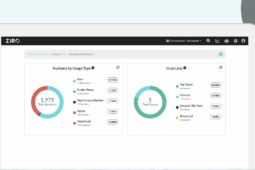
Deciding which UC healthcare strategy will work for your organization does not need to be time-consuming and stressful. There are three options to explore, and all have their pros and cons. Let’s dive in.
TL;DR
- The right UC strategy allows healthcare professionals to respond quickly, improve patient care, and help reduce waste. More IT teams are considering Hybrid and Cloud solutions these days.
- Large healthcare organizations are maintaining multiple hybrid phone systems because switching off one phone system or contact center to another is complicated and expensive.
- Cloud solutions provide the ability to instantly locate and connect with caregivers, route calls effectively, and connect faster regardless of location, reducing interruptions and distractions. It can also save lives.
- On-Prem provides complete access control to complex and sensitive data. This is appealing for healthcare organizations seeking stronger security measures to accommodate HIPPA.
- Learn more about ZIRO’s Cisco and Microsoft UC solutions. Check out our software solutions and UC services.
The State of UC Healthcare
IT infrastructure teams in healthcare organizations rely on unified communications to improve patient care and to connect teams more efficiently. And while UC has improved connections, communication among dispersed healthcare teams across multiple locations and regions remains a challenge. Communication breakdowns due to inefficient systems pose tremendous risks.
The right UC healthcare solution allows healthcare professionals to respond quickly, improve patient care, and help reduce waste from outdated administration processes such as failure of care coordination as illustrated in the chart below.

Source: American Medical Association
And with up to 90% of emergency department nurses having experienced physical violence at some point in their careers, a reliable UC healthcare system provides the opportunity to streamline communications and improve workplace safety.
As shown in our recent LinkedIn poll below, many healthcare IT professionals are leaning toward a cloud or hybrid UC model. A few are still on the fence. This article explains each strategy so you can decide with confidence. Let’s start with hybrid since that strategy leads our poll.


Hybrid
Main Advantage: Using a combination of a public/private cloud phone system along with an on-prem system, healthcare organizations can have the best of both worlds by leveraging their existing investment.
Main Disadvantage: Maintaining multiple phone systems can be taxing without the right support. Hybrid UC typically requires third-party partnerships for deployment and/or maintenance, but it is possible.
Hybrid UC environments integrate UCaaS phone systems into legacy on-prem phone systems. But how do you communicate with coworkers on multiple platforms? What features are available?
We’re starting to see large healthcare organizations maintaining multiple phone systems. Logistically, these large entities cannot switch off one phone system and switch on another on a dime. Some may require many months to migrate while others may never.
And although maintaining multiple phone systems may sound like a hassle, maintaining hybrid cloud and on-prem systems makes sense for departments or divisions that rely on on-prem solutions like Cisco Unified Contact Center Enterprise (UCCE). Trying to migrate that to the cloud would be super complicated and expensive, not to mention a lengthy process.
Further Reading: If you are looking to make Microsoft Teams your UCaaS solution, check out Teams Phone System: What You Need to Know Before Migrating.
Cloud/UCaaS (Unified Communications as a Service)
Main Advantage: Cost effective and maintenance is handled by your service provider.
Main Disadvantage: If there is any downtime, your company and users will be impacted.
With the UCaaS market expected to reach 18.3% CAGR by 2025 in Healthcare alone, it’s no wonder cloud strategies are getting more attention. Gone are the days of navigating multiple devices for email, messaging, and calling. UCaaS allows doctors, nurses, and administration staff to collaborate efficiently with fewer errors.

Source: Mordor Intelligence
Cloud UC solutions like telephony, messaging, and videoconferencing, provide caregivers access to essential data on a real-time basis. The ability to instantly locate and connect with caregivers, route calls effectively, and connect faster regardless of location, reduces interruptions and distractions. It can also save lives.
UCaaS is typically more cost-effective because all maintenance is handled by the cloud service provider. These service providers have redundancies in place to avoid critical issues or disasters from occurring. What’s more, UC technology has advanced to a point where the concerns around security are not nearly as prevalent as they once were.
Further Reading: If you want to dive deeper into the pros and cons of UCaaS for your healthcare organization, check out Cloud or On-Premises Unified Communications: Everything You Need to Know Before You Choose.
On-Premises
Main Advantage: Provides optimal privacy and security.
Main Disadvantage: Can be costly and maintenance onus is on the healthcare organization.
Although cloud technology has come a long way, privacy and security are likely the biggest reasons to maintain an OnPrem UC system. The ability to completely control access to complex and sensitive data is appealing for healthcare organizations seeking stronger security measures to accommodate HIPPA.
While OnPrem might be the best option for optimal security, it takes a lot of work to implement a secure environment. It’s important to get this right – any missteps during implementation could leave you vulnerable to threats or a breach. Larger healthcare providers may be more willing and able to invest in a large in-house IT team to manage an OnPrem UC infrastructure.
As mentioned above in the Hybrid section, some OnPrem systems like Cisco’s Unified Contact Center Enterprise (UCCE) would be very difficult to migrate to the cloud. If your healthcare organization has a call center using that type of technology, staying OnPrem may be the better option.
Further Reading: If you want to dive deeper into the pros and cons of On-Premises UC for your healthcare organization, read Cloud or On-Premises Unified Communications: Everything You Need to Know Before You Choose.
Still On the Fence?
If you’re not sure, don’t sweat it. You’re not alone.
Four out of ten organizations end up doing nothing because of the sheer overwhelm and FUD involved in today’s IT purchasing decisions.
Not to mention the pandemic stretched the healthcare industry beyond anything that we could have imagined. Those who were caught off guard felt the pressing need for seamless communication almost instantaneously. Others, like Aspirus Health, were prepared and put the right UC healthcare solution in place before the ensuing chaos. For more on their story, check out the case study below.

Final Thoughts
No matter which path you choose, ZIRO eliminates the hassle with a proven and guaranteed migration blueprint. From scoping your project to the final pre-launch package, our blueprint clearly defines your wants and needs so you can feel confident about your decisions at every step.
The beauty is that this is a customer-inspired process. We listened as common concerns and hassles were shared and created a map that makes the decision journey for any strategy (on-prem, cloud, hybrid) a simple one. From managed services to intuitive software, we help our clients make decisions faster and smarter with the least amount of heavy lifting.
If you’re looking for a UC healthcare solution that’s either UCaaS, OnPrem, or Hybrid, we can help with unbiased advice, no-nonsense managed services, and easy-to-use provisioning software.
Contact us today or call +1-844-940-1600. We love a good conversation.
Ready to take your unified communications from headache to hassle-free?
No throwing darts at proposals or contracts. No battling through the back-end. No nonsense, no run-around.



